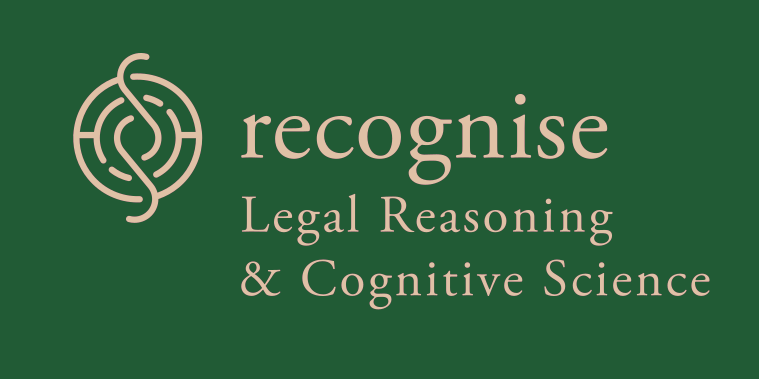This lecture provides an introduction to cognitive biases and their impact on judicial decision-making. A famous study on the effects of mealtimes on judges’ decisions and a series of studies on the so-called 'anchoring effect' will be reported and discussed.
This lecture explores systematic distortions in legal decision-making due to our difficulty in deliberately disregarding relevant but inadmissible information. It surveys different reasons to exclude relevant information, and different psychological phenomena connected to the failure of deliberately disregarding, focusing on one of them: mental contamination.
In this lecture, Giuseppe Rocchè and Michele Ubertone examine the question of whether a subject’s disgust for a course of conduct or a person unconsciously influences the way the subject applies the law to that conduct or person. The first part discusses the theoretical background of their research, namely Johanathan Haidt’s studies on moral reasoning, while the second part presents an experimental protocol that adapts the methodology adopted by Haidt for the study of moral judgements to the study of legal judgements.
This lecture offers a brief examination of the interaction between law and emotions in two parts. The first one tackles the philosophical origins of the prevailing understanding of this relationship and argues that the prevailing attitude towards emotions in the legal realm has been (at least in part) shaped by the almost uniform treatment of emotions by major philosophers. The second one examines how the prevailing understanding of law and emotions is reflected in theoretical conceptualisations of law and its practical application. The predominant attitude towards emotions rests on the presupposition that law is inherently rational and that emotions need to be excluded or at least curtailed in theoretical analysis of law and its practical application.
The lecture engages with the reason-emotion binary in the Western tradition and problematizes such a dualistic conception through feminist theory. The reason-emotion binary is a tool that was historically used to construct and conserve social hierarchies and ensure unequal treatment of legal subjects.
This lecture deals with the relevance of emotion in the criminal law decision-making. It reviews how (moral) emotions are integrated into the general decision-making process and how they may influence legal reasoning. The lecture also touches upon the problems of research on the role of emotions in legal decision-making. Finally, it also addresses the ambiguous role of empathy therein. The second part of the lecture on emotion in criminal law discusses emotions as normative elements of criminal law norms. It illuminates how emotions represent prominent elements of many substantive and procedural criminal law rules and their underpinnings. In conclusion, also the socio-legal perspective on emotions in criminal justice is presented.
This lecture deals with concepts. In the first half, the lecture addresses several aspects of concepts in general. In the second half, several legal basic concepts are discussed, such as obligations, permissions, competences, and juridical acts.
In this lecture, an overview is provided about the standard conception of legal concepts and the way in which it can be modified in view of the paradigm known in contemporary cognitive psychology as “Embodied cognition”. In the final part of the lecture, an experiment made at the University of Bologna is presented to show how experimental methodologies in embodied cognition can be used to enrich our understanding of legal concepts.
The lecture outlines the relevance of cognitive science research to the theory of legal concepts. In the first part, devoted to the introduction to metaphor theory the author focusea on the difference between concrete and abstract concepts in the context of legal concepts, and the idea of mapping (with a very short introduction to embodied cognition). In the second part, abstract legal concepts are depicted as conceptual metaphors, and limitations of metaphor theory in the context of legal concepts are elucidated.
This lecture provides an overview of how legal theorists have understood the notion of defeasibility, i.e., that norms possess non-enumerable implicit exceptions prior to their application. In the first conference, we will examine what constitutes an implicit exception. In the second session, we will analyze two ways of understanding the process and outcome of defeating a norm.
This lecture offers a theoretical framework for analysing the ways in which insights about human and artificial cognition challenge existing legal (reasoning) practices. It briefly touches on possible pathways to address these challenges as well.
This lecture deals with free will and responsibility. In its first half, two arguments against the existence of free will are discussed. The second half addresses the consequences of (the lack of) free will for legal responsibility.
This lecture considers the relevance of the cognitive sciences for law when it comes to acts and responsibility (or liability) of artificially intelligent agents. It addresses whether we (1) can, and (2) should hold AI liable.
The lecture refers to the interconnection between intellectual property law and cognitive science(s). It presents a short summary of the historical evolution of IP law (particularly copyright law) and refers to current problems and dangers that confront the foundations of the intellectual property system: artificial intelligence, datafication and the impact of naturalisation of law.
This lecture explores the architecture of the legal mind, arguing that its main components are intuition and the ability to think in language (which allows for highly abstract thoughts). These two elements, apparently unrelated, are held together by imagination - or mental simulation.
In order to test and improve the eLearning course, a number of practice/sample lectures were recorded early. These are compiled here.
